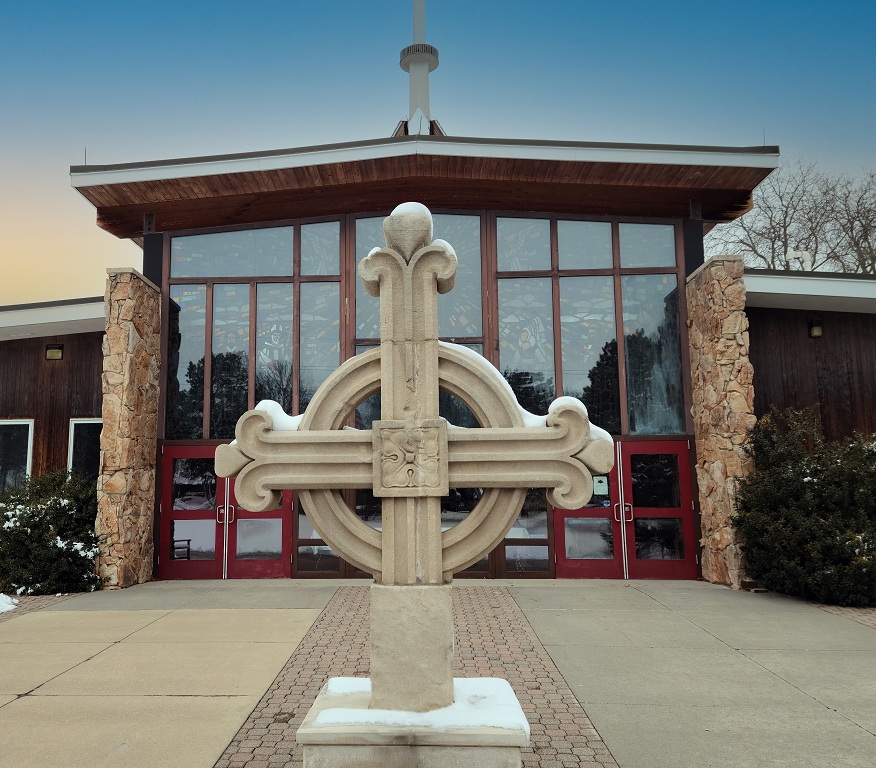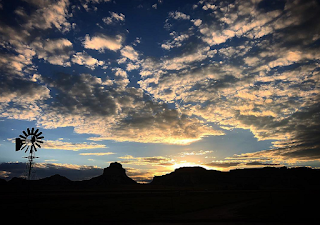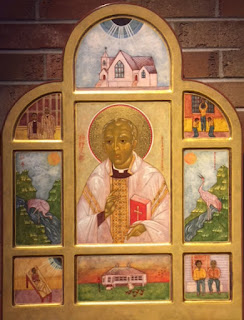Do You Know Who I Am?
DO YOU
KNOW WHO I AM? It was the day before Easter last year. A car of grad students
was pulled over in New Jersey for a routine traffic stop, and the police found
that the registration had expired and the driver did not have insurance. So, they
impounded the car, and one of the kids called her mother to come get them. “Do
you know who I am?” the mother shouted at the officers multiple times when she
arrived. As her arrogant, expletive-laden, 15-minute, abusive rant went viral
on the internet, it cost the mother her job as a commissioner of the Port
Authority of New York and New Jersey—a seven billion dollar agency. She had to resign
in shame a few days later.
“Do you
know who I am?” We hear Jesus warning us about this attitude of self-centered privilege
and self-righteousness in today’s reading from Luke. Jesus is at a banquet, and
he has a message for both the guests and the host. “Guests,” he says, “don’t
come in and take the seats of honor—you might find yourself saying “Do you know
who I am?” to the head waiter, and then being demoted to a table in the back and
shamed, because someone more important than you has arrived.” “Hosts,” he says,
“Don’t invite people to make yourself look important, or because they’ll return
the favor and invite you to one of their smart parties. Invite the people who
really need to eat and find joy in God’s bounty—invite the poor, the outcast,
the lame, and the blind.”
Of
course, Jesus isn’t giving us etiquette lessons—this is a parable. “For all who
exalt themselves will be humbled, and those who humble themselves will be
exalted,” Jesus says. We’ve heard these words before, at the beginning of Luke
in the Magnificat, Mary’s song: “God has scattered the proud in the imagination
of their hearts. God has brought down the powerful from their thrones, and
lifted up the lowly; God has filled the hungry with good things, and sent the
rich away empty” (Luke 1:51b-53). In this parable, Jesus is saying, “The
Kingdom of God is like this…” In the kingdom of God, the most powerful and
honored one of all—God’s Son—has taken the most lowly place possible—the
Cross—to show that true power, ultimate power, God’s power, is about love, and servanthood,
and sacrifice. In the Kingdom of God, it is the humble, the meek, the hungry,
the mournful, the merciful, the peacemakers, who will be blessed. Jesus calls
us to be so blessed….
“Do you
know who I am?” I hear this question with a different inflection in today’s
Jeremiah reading. After our lectionary year “C” Old Testament readings all
summer, I’m hoping you’re starting to see that, basically, in the prophets,
there are only two sins: idolatry (failing to love God), and injustice (failing
to love your neighbor). Today, God is saying to Israel, “Do you know who I am? You
obviously don’t—you’ve forgotten me—you have traded me for false gods.” And in
forgetting who God is, the Israelites have forgotten who they are: God’s
people, a light to the world’s darkness. God laments, “My people have changed
their glory for something that does not profit…their lives are like cracked
cisterns that cannot hold water.” This is a powerful message to us, today. Our
heritage, the thing we were created for, it to be blessed by God and be a
blessing to others. But the culture around us has a very different idea of what
is rewarding and what is powerful and what is empty, and our confusion about
what this has become so profound that we have become idolatrous—letting our
lives be directed by and ruled by things that are not God or part of God’s
blessings to us. Like cracked cisterns, our lives have leaked out the joy that God
intended for us. Our search for own solution to this lack of joy, this emptiness—our
addiction to endless consumption and consumerism, our addiction to opioids—is killing
our planet and killing us. We don’t know who God is, and so we don’t know who
we are….
“Do you
know who I am?” Yet again, I hear this with another inflection in our reading
from Hebrews today. “Let mutual love continue. Do not neglect to show
hospitality to strangers, for by doing that some have entertained angels
without knowing it.” There’s a beautiful symmetry in the original Greek of this
sentence: “mutual love” is “philadelphia”—sometimes that’s translated
“brotherly love”—it literally means love of someone from the same womb.
“hospitality to strangers” is “philoxenia,” love of strangers—the opposite of
what we hear a lot of today, which would be “xenophobia,” the fear of
strangers. These two, philadephia and philoxenia, become one love—God’s love
for all. You remember I said a few minutes ago that injustice was one of the
two sins the prophets preached about? God, who creates and loves all…Jesus, who
gave his life in love to save all…the Holy Spirit, who comes to all, demand that we have that same all-encompassing love. Love
for our own sisters and brothers, and love for strangers—for those in need even
if they are not like us—become the same thing. When we see someone in need,
when we see anyone in need, it is really God saying, “Do you know who I am?” “I
am this person right in front of you now.” It is really Jesus saying, “Whatever
you do to the least of these, you do to me….”
“Do you
know who I am?” I am a sinner. I am someone who says with the
Apostle Paul: there are so many times that, “What I want to do I do not do, but
what I hate I do” (Romans 7:15b). But, I am also a beloved child of God, who
gave his only Son Jesus that I might have eternal life. And you
are also beloved, sinful, redeemed children of God, too. And the immigrant at
our border, and the homeless person at the corner, and the crack-head in
jail—they all are, beloved, sinful, redeemed children of God, too.
The theme
that binds today’s readings together is humility. Humility that recognizes all of
us as equals before God. Humility that values all human life and tries to see Jesus
in all. Humility that never blinds us to the ancient story that we are people
delivered through grace out of darkness into light, out of bondage into
freedom. Humility that allows us to see that we are not what we possess, that
we cannot save ourselves, that we cannot find abundant life by enriching
ourselves at the expense of the poor and the environment. Humility that
recognizes our own weakness and lack of true power and gives us a profound
trust in God’s strength and God’s true power, and, through that trust in God, give
us generosity toward neighbor and stranger alike in Jesus’ name.
“Do you
know who I am?” asks God…My prayer for us all this week is that each of us will
answer, “Yes, Lord. I do know who you are: You are the Creator, the Redeemer, the
Sanctifier, who humbles the exalted, and exalts the humble. Bless me…make me
humble in your name.”
Proper 17 Year C
Jeremiah 2:4-13, Psalm 81:1, 10-16, Hebrews 13:1-8, 15-16, Luke 14:1, 7-14
Proper 17 Year C
Jeremiah 2:4-13, Psalm 81:1, 10-16, Hebrews 13:1-8, 15-16, Luke 14:1, 7-14





Comments
Post a Comment